A 6-3 decision from the U.S. Supreme Court is being described as a victory for both families and religious liberty, even as the public waits for the high court to release its Dobbs ruling in coming days.
In the ruling announced Tuesday morning, the Court said the State of Maine was discriminating against parochial schools through a tuition aid program that was open to nonsectarian private education but barred faith-based schools.
The tuition assistance is available for high school students in the state’s small, rural school districts that do not maintain a high school.
The case, Carson v. Makin, came before the Supreme Court after three families with high school students sued the state but watched the U.S. District Court of Maine rule against them in 2019. A federal appeals court upheld that decision and the U.S. Supreme Court announced in July 2021 is would hear the appeal.
Reacting to the ruling, Michael McClellan of the Christian Civil League of Maine tells AFN the group is encouraged by the ruling.
“And [we] hope that there will be more conversations,” he says, “about how families can make the best decisions for their educational choices here and around the country.”
In the majority opinion, the six justices held the “nonsectarian” requirement violates the Free Exercise Clause of the First Amendment.
“There is nothing neutral about Maine’s program,” Chief Justice John Roberts wrote. “The State pays tuition for certain students at private schools— so long as the schools are not religious. That is discrimination against religion.”
The high court heard oral arguments last December, when religious liberty law firms First Liberty Institute and Institute for Justice represented the families before the nine justices.
In a post-ruling interview, First Liberty attorney Lea Patterson tells AFN the controversy can be traced all the way back to 1980. That year, she says, Maine’s state legislature blocked religious schools from participating but allowed nonsectarian schools to continue to benefit.
“So that’s the religious exclusion,” she says.
“Parents in Maine, and all over the country, can now choose the best education for their kids without fearing retribution from the government,” Kelly Shackleford, chief counsel at First Liberty, said in a statement. “This is a great day for religious liberty in America.”
Despite the Court’s determination that Maine was discriminating against parochial schools, the Left had a collective meltdown over the 6-3 ruling because religious schools stand to benefit.
In a Twitter post, CNN legal analyst Jeffrey Toobin predicted the Supreme Court is moving toward a national policy that allows parents to get vouchers to send their children to a public or a parochial school.
And what does that mean? “’Separation of church and state’ is a vanishing concept at the Supreme Court,” he warned.
In another Twitter post, Washington Post op-ed Jennifer Rubin suggested the Supreme Court ruling is “prime Christian Nationalist stuff.”
The 6-3 ruling was also denounced by the ACLU and by the group American Atheists, Townhall reported.
—-
Copyright American Family News. Reprinted with permission.



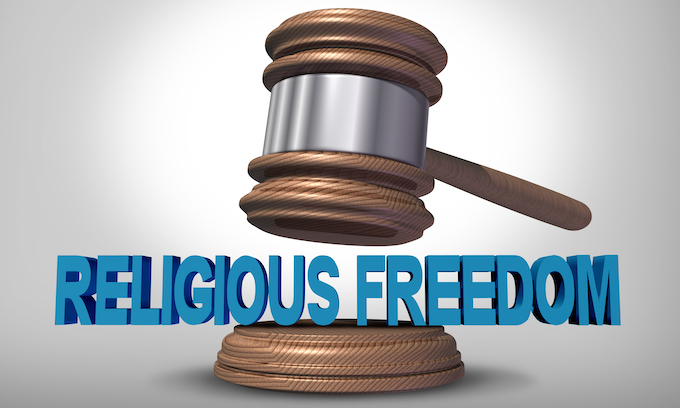
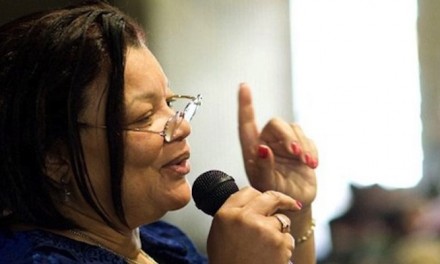
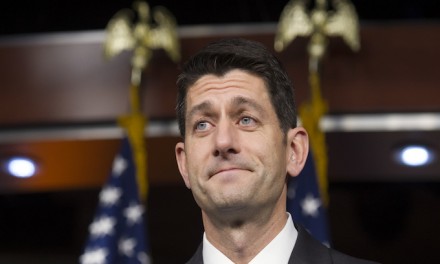
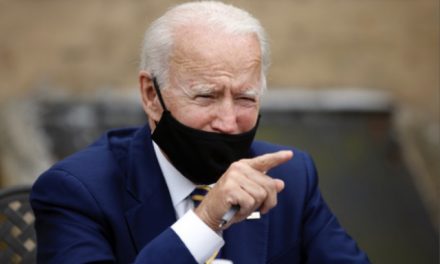
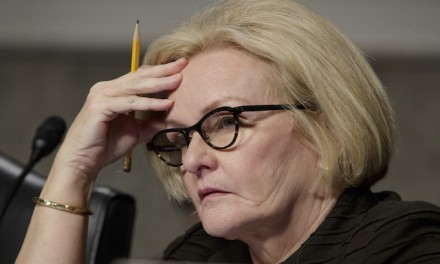











Non-Sectarian and secular socialism IS by definition a religion in themselves. Why do THEIR religions only get to spend American Christian taxpayer’s dollars to educate and indoctrinate the American innocent into postures of becoming the guilty? All we have succeeded to do over the past 40 years is create smarter criminals, then import more illegal alien law breakers to enlarge the criminal pool of people who believe they can ignore the established laws of the majority at will, who now, thanks to the Democrats, have no fear of consequences nor punishment.
Religion – “a particular system of faith and worship:,,, a pursuit or interest to which someone ascribes supreme importance”,,,like the religion of politics and government control that people turn to in times of trouble which actually defines who and what they worship.
“Congress shall make no law respecting an establishment of religion, or prohibiting the free exercise thereof”,,,,,,,they always forget the Prohibiting the free exercise thereof part,,,just like they remember Jesus saying Judge not lest Ye be judged, then forget about the part of ”Now go and sin no more” Half-truth people who when given power can only give half-assed solutions. Enter The Bidens.
I am sick to death of atheists and the like, whining about separation of church and state, BUT WHO THEN TURN AROUND AND DO NOTHING to stop the leftists push of their DEMONIC CULT of wokism, OR that death cult islam, in our schools..
Have you ever wondered why Democrats hate God, why Democrats fight against God word and approve of, encourage and support everything that the Holy Bible says is an abomination to God? I truly think that the Democrat Party is a demonic cult and its supporters are disciples of Satan.
One’s relationship with God is entirely between them and God.
One’s relationship with Satan is entirely up to them.
To fully advance the Lying, Treasonous, Demonic, Socialist Democrat Party’s destructive beliefs and agendas: is to divide our citizens with hate and promote – racism, open borders, radical feminism, abortion-on-demand, the LGBTQ lifestyle, unfettered sexual identity, transgender, same sex marriage, child indoctrination into sexual confusion and perversions, the pagan Liberal left Democrats must do away with GOD, our Constitution, common sense, morality, Christian values and free religious exercise altogether.
Under the Disguise of “anti-discrimination.”
Once again the canard of “Separation of Church and State” raises it ugly and misunderstood head, even by Justice Sotomeyer in this case! Liberals like fluid meanings of words so they can be twisted into unexpected definitions and ‘establishment’ is one. The intent n The Constitution was to prevent Congress from creating a state church like many other countries had at the time, the church and the government being one as in Islam; imagine Joe Biden as the country’s chief archbishop, iman or rabbi! The wall of separation in Jefferson’s letter to the Danbury Baptist Association was meant to assure skeptical church members of no interference by the government in church matters or a mandatory church. He was also aware their was this free exchange of ideas between both entities, in some ways religion could act as a conscience to the country.
Exactly. ITS NOT IN the constitution itself. IT was just a letter one of the founders, sent to an association. NOTHING MORE.
This discrimination has been going on for over 42 years; since 1980…
About Time!
It’s rulings like this that remind us of the importance of appointing true constitutionalists to the Supreme Court. What feels like a victory for conservatives shouldn’t even be in question since it is spelled out plain in simple in the Constitution.
It just goes to show, how warped leftists have made things, when actually UPHOLDING the constitution, is seen as a rare victory.